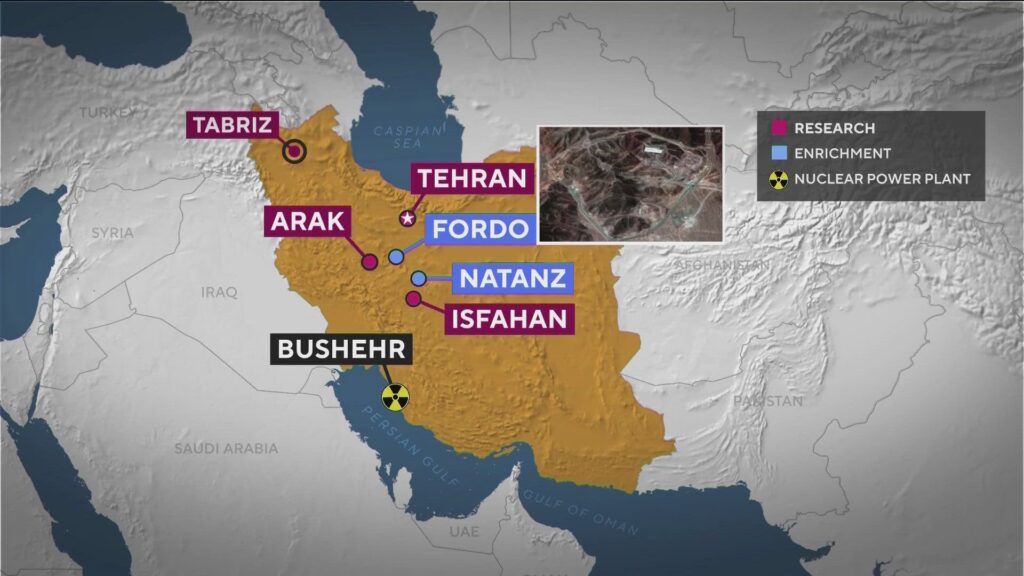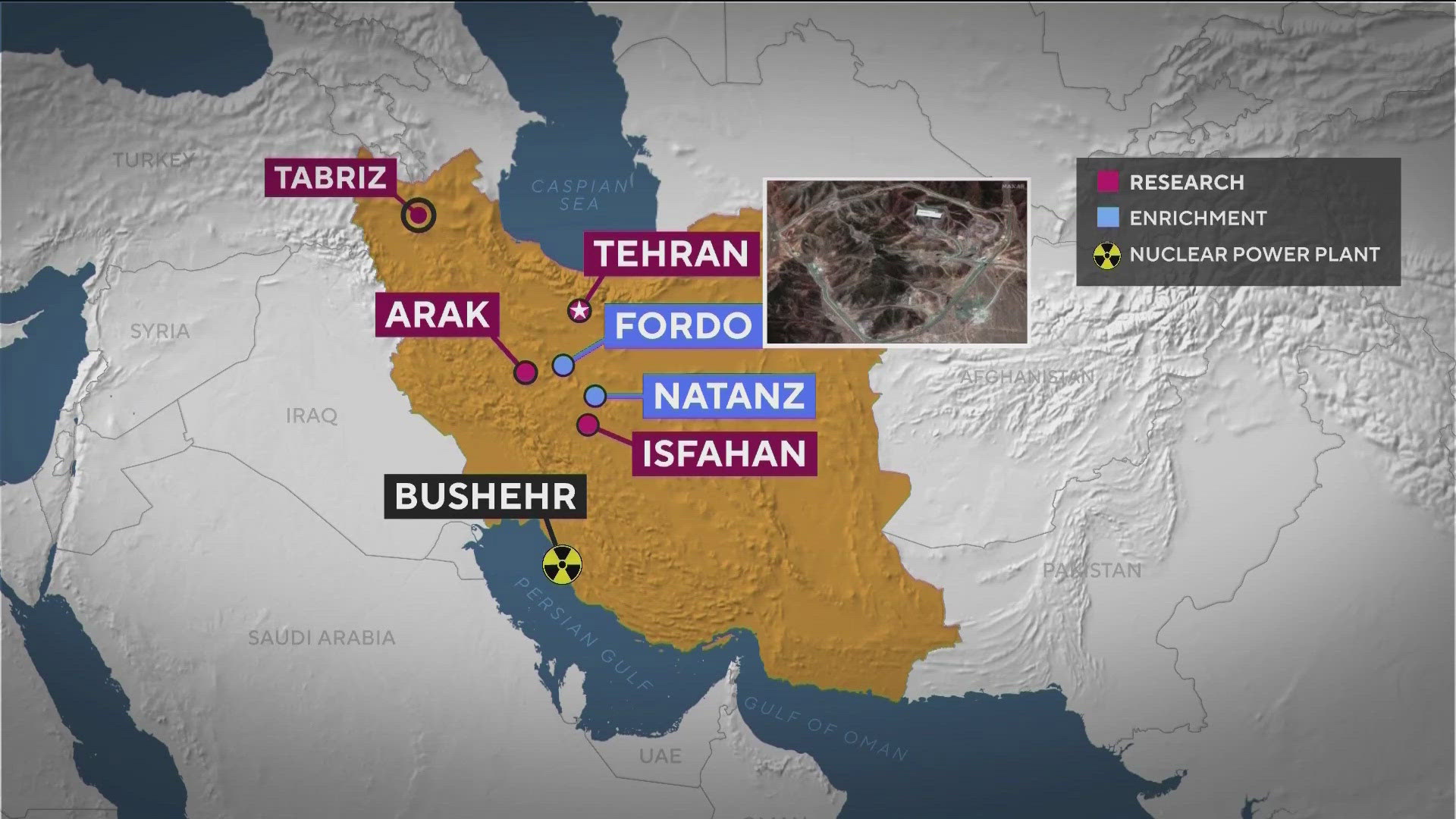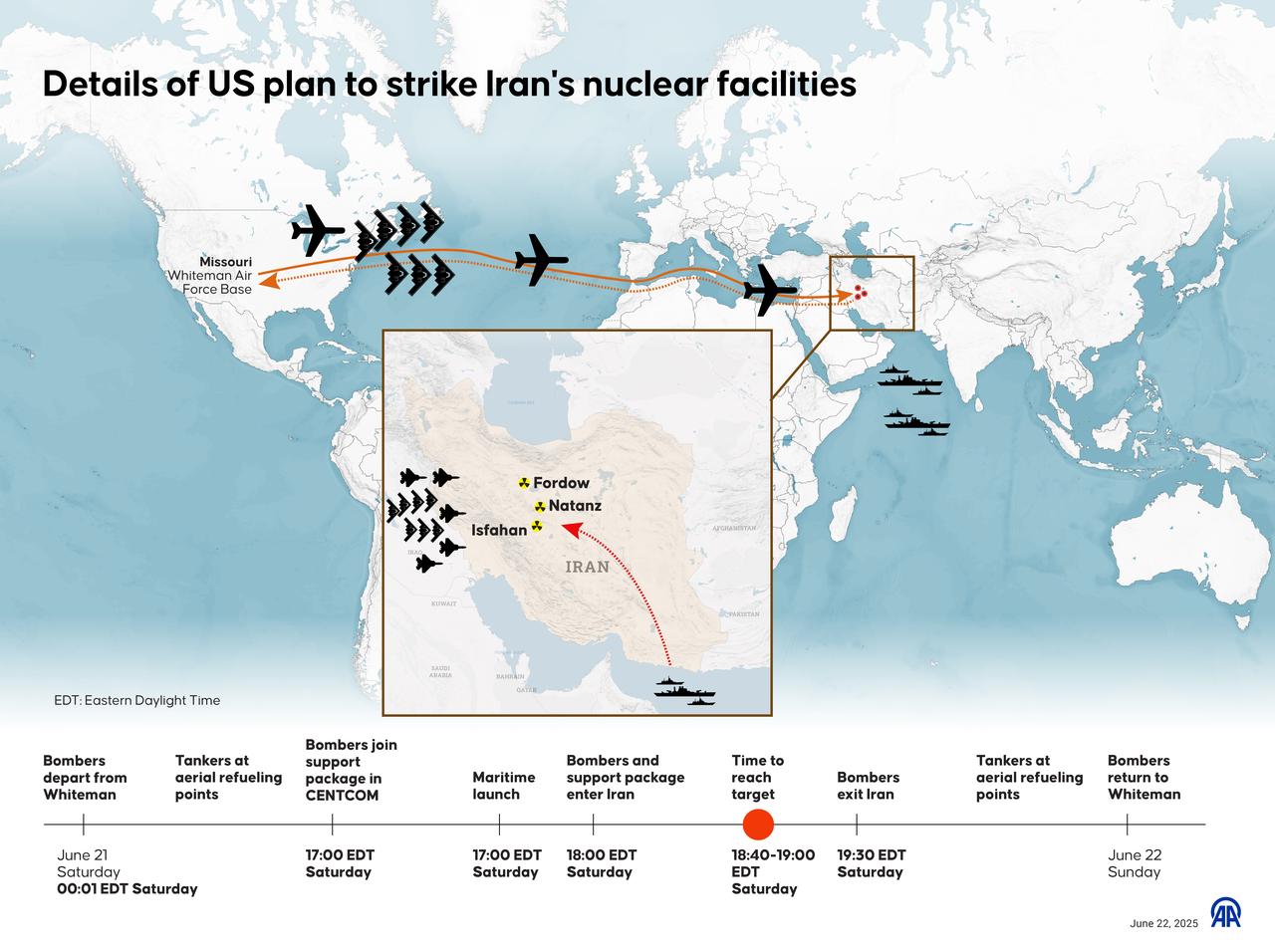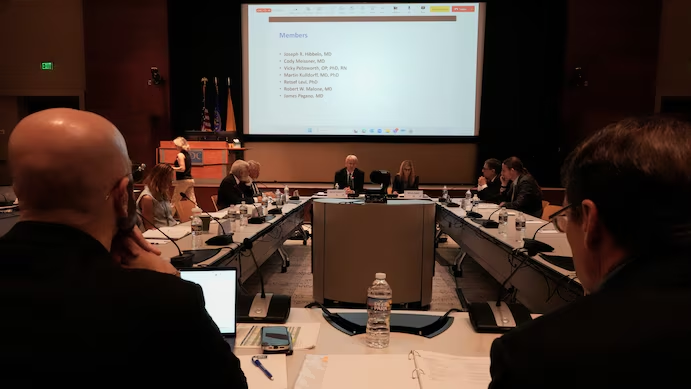Escalation in the Middle East: Tensions Reach a Boiling Point
US Launches

In a major and unprecedented development in Middle Eastern geopolitics. United States has launched a comprehensive military strike to Iranian nuclear facilities. The action marks a critical turning point in the already fragile relationship between the two nations.
According to initial reports, several key nuclear installations in Iran have been targeted in a sweeping offensive that has drawn international attention and concern.
This event signals a new chapter in global security discussions, especially as it pertains to nuclear non-proliferation, regional stability, and international diplomacy. The full-scale military operation reportedly focused on suspected uranium enrichment sites and associated military infrastructure.
Background Behind the US Launches Midnight Hammer Decision to Strike
The backdrop to this high-stakes military operation involves years of mounting tensions between Washington and Tehran. The origins of this latest escalation can be traced to diplomatic deadlocks over Iran’s nuclear program, which many Western nations believe is being used to develop nuclear weapons under the guise of energy development.
Despite prolonged negotiations and intermittent nuclear agreements, Iran has continued to enrich uranium at levels far exceeding internationally accepted limits. The failure of this efforts, combined with intelligence reports alleging increased nuclear activity, appears to have prompted the United States to take this drastic step.
Objectives of the US Launches Midnight Hammer Military Action
The primary objective of the strike appears to be crippling of Iran’s nuclear capabilities. Targeted attacks were launched against nuclear research centers, uranium enrichment facilities, and military installations believed to support nuclear infrastructure.
According to defense analysts, the operation aims to set back Iran’s nuclear program significantly, potentially delaying its ability to develop a functional nuclear weapon. The United States government has described the mission as a necessary action to protect international peace and to prevent a potential nuclear crisis in the Middle East.
Iranian Response and Global Reactions to US Launches Midnight Hammer
In the immediate aftermath of the strike, Iranian leaders condemned the attacks, describing them as a violation of international law and an act of war. State media in Iran reported widespread damage to several facilities, though full details remain unclear.
Global reactions have been mixed. Some Western allies have voiced support for the United States, citing the threat of a nuclear-armed Iran as justification for the operation. Others have urged restraint, calling for an emergency meeting of the United Nations Security Council to address the escalation.
Countries in the region, particularly those bordering Iran, have expressed concern about potential retaliation and the possibility of a broader regional conflict. International organizations are closely monitoring the situation and urging all parties to return to the negotiating table.
Strategic and Political Implications
The decision to engage militarily with Iran carries far-reaching strategic and political implications. Domestically, the United States administration is likely to face both praise and criticism depending on political perspectives.
Supporters argue that the operation was a necessary act of defense against a looming threat. Critics, on the other hand, fear it could destabilize the region further and spark long-term military engagements.
On a global level, this action could shift alliances and influence future world relationships. Countries that previously remained neutral in the Iran nuclear debate may now be compelled to take a stand. This could also affect global arms treaties and heighten scrutiny over nuclear programs in other nations.
Potential for Retaliation and Future Conflicts to US Launches Midnight Hammer
Military experts caution that Iran may not remain passive in the face of such a significant military blow. There is widespread concern about retaliatory attacks on American assets in the Middle East and possible cyberattacks aimed at infrastructure.
Regional proxy forces aligned with Iran may also engage in hostilities, further complicating the situation. Intelligence agencies across multiple countries are on high alert, preparing for potential fallout from the operation.
Impact on Global Energy Markets
Another significant consequence of this military operation is its impact on global energy markets. Iran is a major player in the oil industry, and any disruption to its production or export capabilities could lead to fluctuations in global oil prices.
Traders and economists are already speculating about increased volatility in energy markets. A prolonged conflict could affect shipping lanes and oil supply chains, driving up prices and impacting economies worldwide.
Diplomatic Channels Remain Open
Nevertheless, despite the severity of the situation, several international leaders have called for a renewed focus on this problematic and the wrong development.
Moreover, humanitarian organizations and peacekeeping bodies are urgently urging both nations to avoid further escalation and instead seek peaceful solutions.
However there is still hope among some country circles that a multilateral agreement could eventually be brokered to ensure nuclear safety and security while addressing the core concerns of both nations. For that to happen. So the trust must be rebuilt and new avenues of negotiation must be explored.
Conclusion: A Defining Moment in International Relations
The United States’ full-scale strike on Iranian nuclear sites marks a pivotal moment in modern geopolitics. With potential ramifications ranging from regional warfare to global economic instability, the world watches closely as events unfold.
Whether this action succeeds in its objective to curb nuclear proliferation or leads to greater conflict will depend largely on the decisions made in the coming days. As of now, the need for responsible diplomacy, strategic foresight, and global cooperation has never been more urgent.




